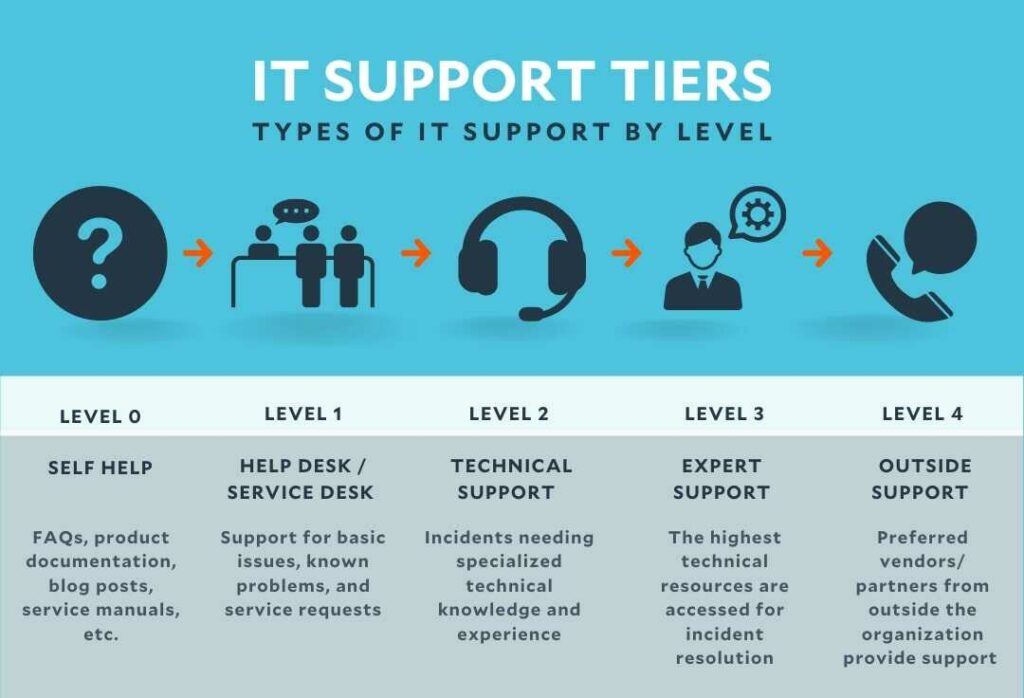Within the current rapidly evolving technological landscape, choosing the best IT service provider is a critical decision for businesses of all scales. With technology continuing to evolve swiftly, having a reliable partner to assist your IT needs can result in a considerable difference in your overall productivity and safety. Ranging from cybersecurity to cloud computing, the right provider can aid you navigate the challenges of modern IT and position your business for victory.
Since organizations increasingly rely on technology to operate efficiently, understanding the nature of IT services involve becomes crucial. This comprehensive guide explores the various facets of IT support, such as the significance of IT support for small companies, the distinctions between in-house and managed IT services, and developing trends to observe in the coming future. Whether you are aiming to enhance your cybersecurity protocols or optimize your IT infrastructure, knowing how to choose the correct IT support provider can create opportunities for more efficient operations and enhanced business outcomes.
Comprehending IT Services
IT services cover a broad variety of technological offerings offered to businesses to assist them perform smoothly and efficiently. These services feature everything from technical support and network management to software installation and IT consultancy. As https://key-eaton.thoughtlanes.net/the-benefits-of-contracting-it-solutions depend on technology for their operations, knowing what IT services are and how they can benefit an organization is crucial for formulating informed decisions.
The importance of IT services cannot be overstated, particularly for small businesses that could not have the resources to maintain a full-scale in-house IT department. IT service providers deliver specialization that allows these businesses to focus on their primary activities while making sure their technology infrastructure operates smoothly. By utilizing external IT support, small businesses can access the newest technology without the substantial upfront costs related to acquiring and maintaining hardware and software.
Moreover, IT services play a vital role in improving business efficiency and productivity. With https://limitcold7.bravejournal.net/navigating-regulations-in-it-services-what-you-should-know , organizations can lower downtime, optimize processes, and improve overall performance. This creates a more agile business environment, where companies can adapt swiftly to changing requirements and market conditions, ensuring they stay effective in an ever-evolving landscape.
The Importance of Cybersecurity
In today's digital landscape, the value of cybersecurity cannot be underestimated. Every company, regardless of size, is a potential target for cybercriminals seeking to exploit vulnerabilities in their networks. A comprehensive cybersecurity strategy is essential to protect sensitive data, maintain customer confidence, and ensure regulatory adherence. With heightened reliance on technology for essential operations, businesses face increased risks from data breaches, ransomware attacks, and other cyber threats that can lead to significant financial losses and reputational damage.
Allocating resources in cybersecurity not only protects a business's assets but also boosts its overall effectiveness. Effective cybersecurity measures can mitigate downtime caused by breaches, allowing employees to dedicate themselves to their core tasks instead of dealing with the aftermath from an attack. Additionally, a anticipatory approach to cybersecurity can help identify and mitigate risks before they escalate into grave problems. This forward-thinking strategy not only defends assets but also leads to a more streamlined and effective operational environment.
Furthermore, as businesses progressively adopt remote work models and cloud-based solutions, the need for robust cybersecurity measures becomes even more critical. Remote employees often access company data over potentially insecure networks, amplifying vulnerability to cyber threats. Creating rigorous security protocols for remote access, regular training on cybersecurity best practices, and allocation of resources in managed IT services can significantly boost a business's defense against cyber threats, ensuring that both the business's and customers' data remain secured.
Choosing Between Internal and Managed IT
When choosing between internal IT solutions and managed IT services, it is essential to assess your company's specific needs and capabilities. In-house teams provide the advantage of having specialized staff who are familiar with your company's systems and culture, allowing for a much personalized approach to IT oversight. Nonetheless, this model may require substantial investment in hiring, training, and ongoing compensation, which can strain your budget, particularly for smaller businesses.

On the other hand, outsourced IT services offer a much scalable and cost-effective solution. By contracting to a third-party service provider, businesses gain access to a wide range of expertise and advanced technologies without the requirement for significant upfront investments. Managed service providers can address a number of IT problems, from network monitoring to cybersecurity, allowing your organization to benefit from around-the-clock support and specialized knowledge.
Ultimately, the decision between internal and managed IT services should align with your company goals and expansion trajectory. If your company is looking to reduce costs, enhance agility, and leverage cutting-edge technologies, outsourced IT solutions may be the more favorable option. Conversely, if keeping full control over IT operations and building strong internal relationships is a goal, building an in-house team could be the right path ahead.
